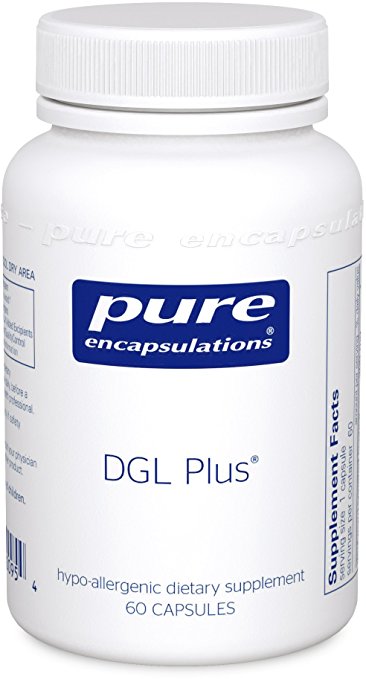Causes & Treatment of Pregnancy Heartburn, Acid Reflux, and GERD
/I’m now 28 weeks pregnant with my second baby. I had reflux during my first pregnancy and it definitely made me uncomfortable, but I avoided medications. During this pregnancy, my reflux was significantly worse. I was really suffering -- waking up from it as many as 20 times a night.
I sought help from Sharon Yeung MS, LAc (a Licensed Acupuncturist, Board Certified Chinese Herbalist, Childbirth Doula, and founder of Five Seasons Healing in NYC). Her advice has been incredibly helpful to me so I sat down with her to share her wisdom with other pregnant women. See below for Sharon’s full bio.
I've linked to Amazon listings for a number of the products mentioned in this post. These links are affiliate links, which means that when you click through and make a purchase, I earn a small commission at no cost to you. Please see the disclosure page for additional information.
BACKGROUND
How common is acid reflux in pregnancy?
Reflux is very common during pregnancy and occurs in more than half of pregnant women. It can occur at any time during pregnancy but tends to be most common during the last trimester.
People seem to use the terms reflux and heartburn interchangeably, is there a difference?
Although reflux and heartburn can share similar characteristics and may have similar causes, heartburn is a burning discomfort caused by stomach acid rising up into the esophagus. Reflux can include heartburn symptoms but can also present with a bitter or acidic taste in the mouth and throat, nausea and burping.
In simple terms, what causes acid reflux in pregnancy?
During pregnancy, there is a rise of the hormone progesterone. Progesterone is necessary for a healthy and safe pregnancy but has the effect of slowing down digestion and relaxing muscles--including the lower esophageal sphincter (LES), which is the flap between the stomach and esophagus. When digestion slows down, food tends to stick around longer in the stomach and stomach acid can creep upwards.
A growing womb also increases pressure on the stomach, especially later in pregnancy. Interestingly, scientists (and pregnant mamas!) have noticed a correlation between pregnancy reflux and a baby with lots of hair! So perhaps just imagining those silky newborn locks may make the heartburn more tolerable.
At what point in pregnancy does reflux typically start and end?
Reflux can strike at any point during pregnancy because of hormonal changes but it is more likely to increase in the last trimester as baby grows and pushes up into the epigastric area.
Other than discomfort, are there potential repercussions to not treating reflux?
Asides from discomfort, acid reflux can cause inflammation and damage to the mucous membrane of the esophagus, throat and mouth. If left untreated, reflux can cause ulcers and abnormalities in the esophageal lining.
TRIGGERS
I know that some foods can trigger reflux, would you say that the first line of attack is to avoid trigger foods?
Yes and no. Avoiding trigger foods can definitely help to reduce symptoms but the hormonal and structural changes of the pregnant body may cause reflux nevertheless. Eating smaller meals, not eating too late at night or elevating one’s head during sleep are other ways to prevent symptoms (you can find wedge pillows here). When one lays down for bed with a full stomach, it’s much easier for food to creep upwards.
What are common trigger foods?
The common trigger foods are those that relax the lower esophageal sphincter (LES) or increase stomach acid. They include tomatoes, citrus, spicy food, coffee and other caffeinated drinks, chocolate, alcohol, garlic, onions and peppermint. I have also seen patients benefit from cutting out out dairy or gluten.
TREATMENTS
For my own treatment, you have recommended two natural treatments, both of which have given me some relief. Can you tell us about them?
Even though Chinese herbs are my first go to for most health concerns, I have found that a few natural supplements are very effective and safe for treating pregnancy reflux.
- Deglycyrrhizinated Licorice ( DGL): If you love the taste of licorice, then you’re in luck. Chewing 1-2 of these tablets 20 minutes prior to eating can drastically reduce or eliminate reflux symptoms. This supplement is specially designed so that licorice in larger quantities is safe for consumption, even during pregnancy. DGL coats and protects the esophageal lining.
If you don’t like the taste of licorice, you can also find DGL in capsule form (follow the instructions on the bottle, starting with one daily before a meal and increasing to two per day if necessary).
- Zinc-Carnosine: Zinc-carnosine is the combination of the trace mineral, zinc, with the amino acid, carnosine. Together, this supplement has a huge boost to digestive health in its ability to reduce inflammation and promote gastric healing and a healthy mucosal lining. In addition, Zinc-carnosine can protect the gut from the side effects of NSAID and proton pump inhibitor (PPI) use.
This is the chewable DGL that Sharon recommends
This is the capsule version, which I pref over the chewable.
Can acupuncture alleviate reflux too?
Acupuncture can be a safe and effective tool for relieving reflux symptoms. According to Chinese medicine theory, there are channels, called meridians, of energy which flow throughout the body. In health, these meridians are full of qi, or life force, and flowing smoothly in the proper direction. During pregnancy, the meridian channels must accommodate the growth of baby by rerouting and finding a new harmonious flow. Hence, it’s easy for energy to be blocked or flowing counter to its normal direction, as seen in the ascending nature of reflux, nausea, burping etc. An acupuncturist can identify the meridians that are most affected and help to re-establish the proper directionality of flow.
Should the remedies that you recommended offer complete relief?
It really depends on the intensity of the symptoms. I have seem patients with very mild reflux who may only need to take a single DGL every few days on an as needed basis. Yet others have more unremitting symptoms. In these cases, one might need to take a multi-prong approach to care by making changes in diet and lifestyle, and combining natural and pharmaceutical remedies. The important thing to remember is that a pregnant woman’s body is always changing and one might find that after a few days or weeks, symptoms change. She can safely experiment with adding or subtracting remedies with the hope of using the minimum of what is needed to feel good.
I’ve heard lots of pregnant women say they don’t go anywhere without bringing a stash of TUMS. I’ve also heard friends joke about rationing their TUMS so they don’t hit the maximum daily allowance too early in the day. What are your thoughts on taking TUMSfor reflux?
The upside of taking TUMS during pregnancy is that it contains calcium, an important mineral needed in pregnancy. The downside, however, is that TUMS works by reducing the production of stomach acid, an important chemical of digestion. If stomach acid is insufficient, which can, in turn, further slow down digestion. Taking too many TUMS might, over a long period of time, actually prolong reflux symptoms.
Would you say that same downside presents with PPIs?
Yes. PPIs (such as Prilosec OTC, Nexium and Prevacid) are not great long-term remedies. But because they work in the moment and are convenient, they are in wide use. I generally like to help patients transition off PPIs, pregnant or not.
There are heartburn teas on the market, including at least one marketed to pregnant women for occasional heartburn relief. I’ve tried this tea and it definitely took the edge off, but the remedies that you describe above gave me significantly more relief . What are your thoughts on tea to treat or prevent heartburn?
I’m not familiar with the tea that you mentioned but I see that it contains western botanicals that are commonly used to soothe the stomach. I often recommend raspberry leaf tea (not to be mistaken with raspberry zinger) at the end of a pregnancy to help prepare the uterus for labor so my first inclination is to advise against using this product in early pregnancy. But one must remember that all supplements, natural or pharmaceutical, have safe and unsafe dosages. In general, I find that teas that are sold over-the-counter tend to not have a high enough concentration to offer a strong therapeutic effect. Sometimes when I am prescribing the use of over-the-counter teas for a medical reason, I’ll have patients use multiple tea bags and simmer for 10 minutes.
My own obstetrician approved of me taking the products that you recommended but also offered prescription alternatives. What are your thoughts on prescription remedies for reflux?
I have found that most pregnancy reflux sufferers have not needed to resort to prescription remedies because they were able to manage and alleviate symptoms through diet, acupuncture, lifestyle changes and natural supplementation. That said, prescription medication can be safe and effective when prescribed by an experienced clinician. One should take certain precautions when taking proton pump inhibitors (PPIs such as Prilosec OTC, Nexium and Prevacid) because they have been linked with cardiovascular disease, so ask your midwife or obstetrician first.
Sharon, thank you so much for sharing such helpful information! Your advice has helped me immensely and I hope that it helps others too!
If you enjoyed this post, please comment with other topics that you would like to see us cover!
Sharon Yeung is a Licensed Acupuncturist and founder of Five Seasons Healing. She is a Board Certified Chinese Herbalist and Childbirth Doula. She received advanced clinical training in hospitals throughout China in gynecology, pediatrics and classical herbal medicine and has worked in the obstetrics, oncology, and neurological & orthopedic rehabilitation departments at Lutheran Medical Center in Brooklyn, NY. Prior to attaining her masters degree in Oriental medicine, Sharon graduated with honors from Wesleyan University.
Sharon is certified with the National Acupuncture Detoxification Association for her work with acupuncture in addiction and recovery. She applies the integrated mind & body Chinese medicine approach to treating adults and children with ADD and other behavioral conditions. Sharon volunteered with the Tibetan Health Care Project in India treating Tibetan refugees with acupuncture. In addition to her graduate work in Chinese medicine and biomedical sciences, her training with Tom Bisio and Frank Butler in Zhenggu Tuina and with Bonnie Bainbridge Cohen in Body Mind Centering has enhanced her ability to recognize the body’s innate signs of harmony and imbalance.
Sharon believes that her role as a Chinese medicine practitioner is to help relieve the suffering of the body as well as of the heart. She is grateful to be in a medical profession she loves and endeavors to offer Chinese medicine’s healing potential to all her patients. Sharon enjoys teaching martial arts to children and is a longtime practitioner of Iyengar and Anusara yoga, Hungga kungfu, and Vipassana Meditation.











